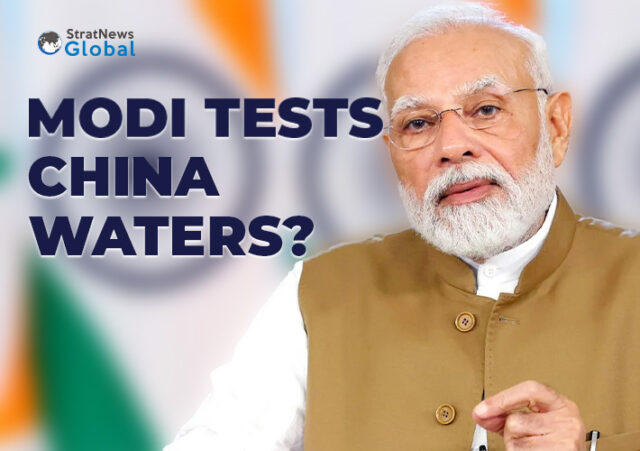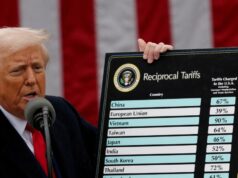“It is my belief that we need to urgently address the prolonged situation on our borders so that the abnormality in our bilateral interactions can be put behind us.” That was Prime Minister Modi on relations with China in his recent interview with Newsweek magazine. It sparked interest among diplomats and China scholars here, given that External Affairs Minister Jaishankar has largely been the point man for the public, on this relationship. Was the interview the result of Jaishankar’s advice, or was Prime Minister Modi acting on his own is not clear. But much meaning is being read into these words, “We need to urgently address the prolonged situation on our borders so the abnormality …. can be put behind us.”
China watchers believe Prime Minister Modi on relations with China has released a trial balloon, inviting the Chinese to talk post-elections. The outreach is probably driven by two concerns: the deployment of troops and equipment on the Line of Actual Control for the last three and a half years is a financial burden India could do well without. Current growth levels have enabled India to sustain this without much effort, but what if the geopolitical situation further deteriorates, and oil prices go through the roof?
The sense here is that China will not yield on the border. It will continue to block the movement of Indian patrols upto Point 17 in the Depsang Plains, and in Demchok. It is also bleeding but for a $17 trillion economy, the pain is much less compared to India’s.
Delhi also believes that more than any other country, India given its long land border with China and a fraught political-security relationship, has gone the extra mile in standing up to our northern neighbour. And India has stood alone. There has been no real support from the West, aside from a US statement that Arunachal is a part of India and that “We strongly oppose any unilateral attempt to advance territorial claims by incursions or encroachments, military or civilian, across the Line of Actual Control.”
India has also helped shore up the US position in the Indo-Pacific: witness the outreach to the Philippines with the sale of the Brahmos missile system to counter China. Also, the rising profile of India’s ties with Vietnam and Indonesia, two countries that are also facing intimidation and intrusions in their waters by Chinese naval and coast guard vessels.
Yet, for all that, India is derided as the “weak link” in the Quad, even when the Australians and others rush to kiss and make up with Xi Jinping.
China watchers point to the other part of Prime Minister Modi’s Newsweek interview, where he is quoted as saying, “I hope and believe through positive and constructive bilateral engagement at the diplomatic and military levels we will be able to restore and sustain peace and tranquility on our borders.”
He was reminding Beijing that the two countries had jointly, over 20 years, crafted a series of agreements (see box) that was intended to avert what happened in the Galwan Valley in 2020, and the unprecedented standoff on the Line of Actual Control in Ladakh. They could do so again.
China’s response was low key. It came from Ma Ning, foreign ministry spokesman who said on April 12, “About the border issue, China and India are remaining in close communication through military and diplomatic channels and great positive progress has been made.”
Global Times also chipped in with an editorial titled Modi’s remarks on China India relations are Thought Provoking. Describing his remarks as “rare and carefully timed”, the editorial said “It corrects the current heating-up trend of India’s attitude and actions on border issues, demonstrating a willingness to pragmatically resolve problems and ease bilateral tensions.”
But there’s been nothing from higher up the mandarin ladder, no word from Wang Yi, the foreign minister, or anybody else. The word is if Wang Yi comes after the elections, he may well demand status quo on the border, easing of restrictions on Chinese firms seeking to do business in India, strong statement on multipolarity, on the SCO and BRICS.
No negotiation is without compromise and India will have its set of demands. But expect the Chinese to push hard. They have been bruised by India over the last three years, they have lost face and know Delhi is not the pushover it once was. They know any deal will not see India lower its profile in China’s South China Sea backyard or erase adversarial sentiment. But a semblance of normalcy may be preferable, or so we think.
Thirty eight years in journalism, widely travelled, history buff with a preference for Old Monk Rum. Current interest/focus spans China, Technology and Trade. Recent reads: Steven Colls Directorate S and Alexander Frater's Chasing the Monsoon. Netflix/Prime video junkie. Loves animal videos on Facebook. Reluctant tweeter.





